AITA for Refusing a Second Job While My Husband Refuses Any Job at All?
OP has been navigating a rough financial patch after her husband’s business—his long-time passion project—started bleeding money and finally had to shut down. It’s a major life shift, and understandably, her husband is emotionally struggling with the loss. But what started as emotional support and patience on OP’s part has turned into something way more one-sided.
She still runs her own business, works full-time, and handles the bulk of parenting and housework. Meanwhile, her husband has declined to seek therapy, hasn’t seriously looked for work, and is now being enabled by extended family. In fact, OP’s sister-in-law had the nerve to suggest that OP take on a second job so her husband wouldn’t have to deal with the discomfort of employment under someone else’s rules.
Naturally, OP is starting to feel insane. Everyone around her seems to be validating her husband’s avoidance and calling her unreasonable, when all she’s doing is trying to survive and protect their family’s future.
This woman’s husband was devastated when he realized that he was going to have to shut down his business

But now, he’s refusing to find any other source of income
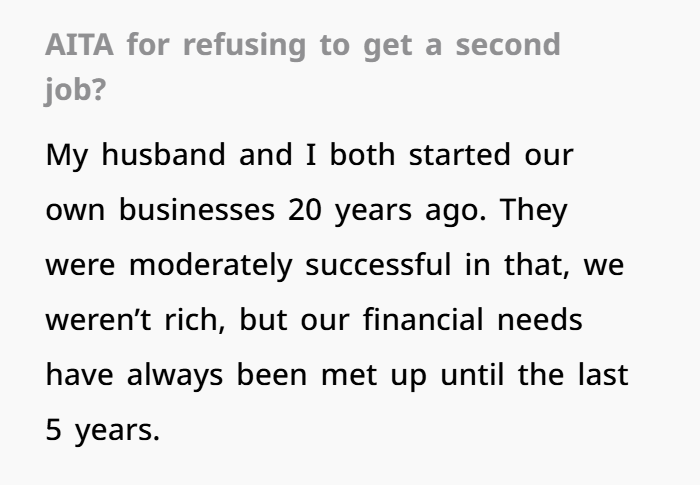
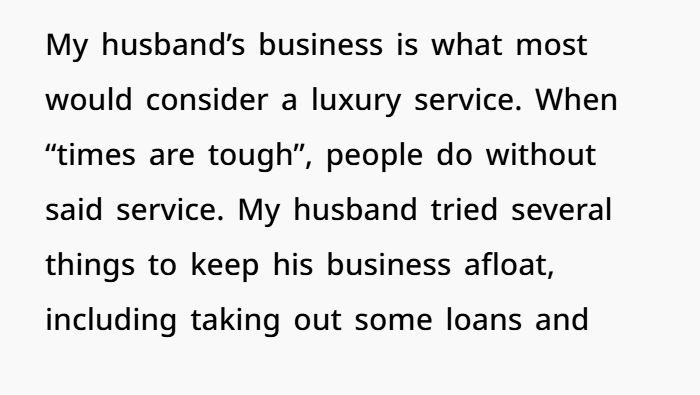
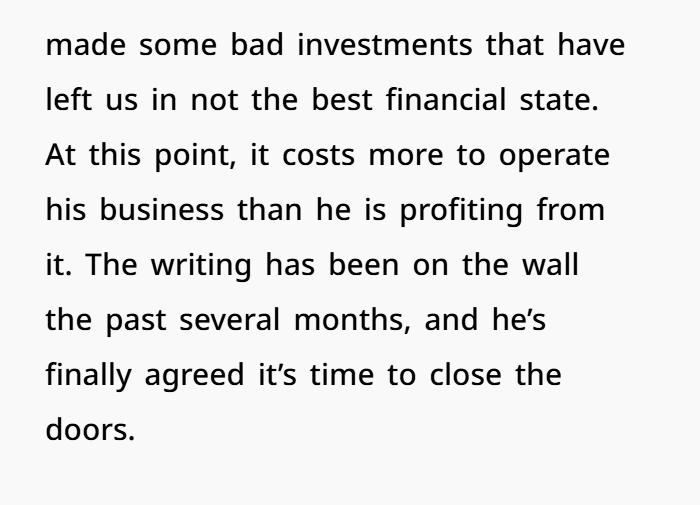
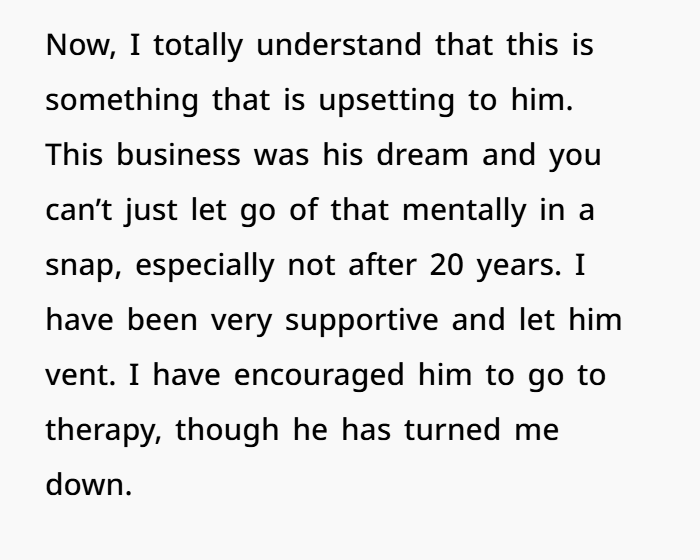
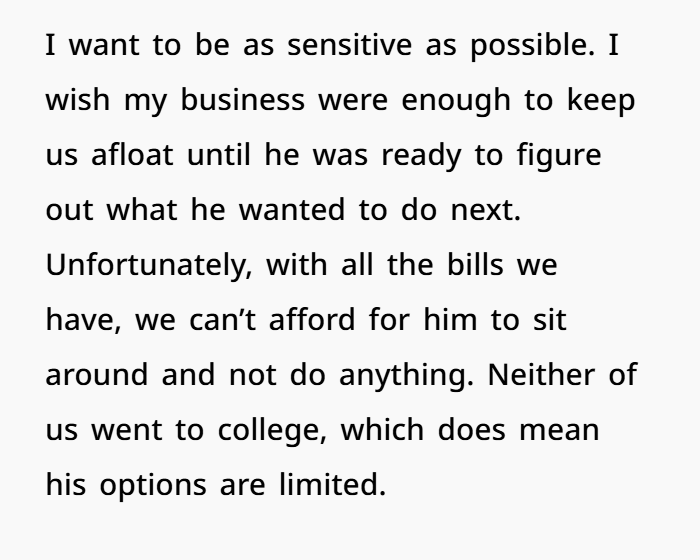
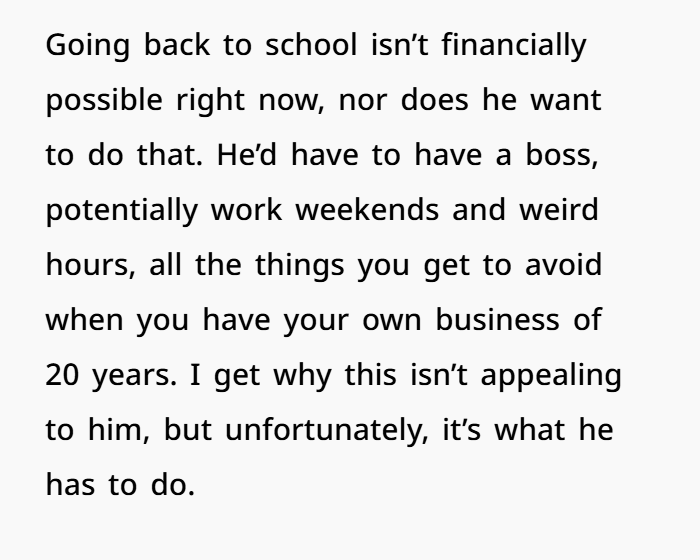
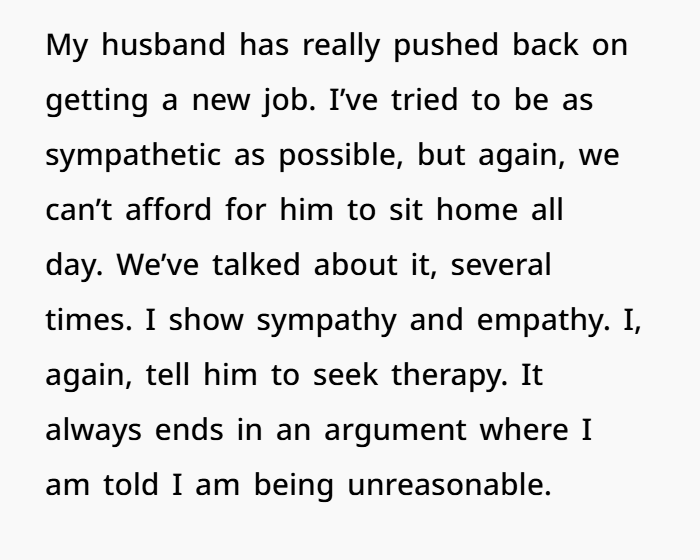
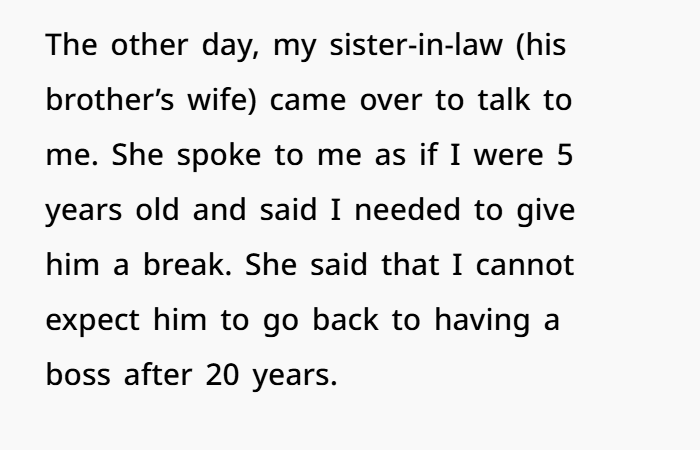
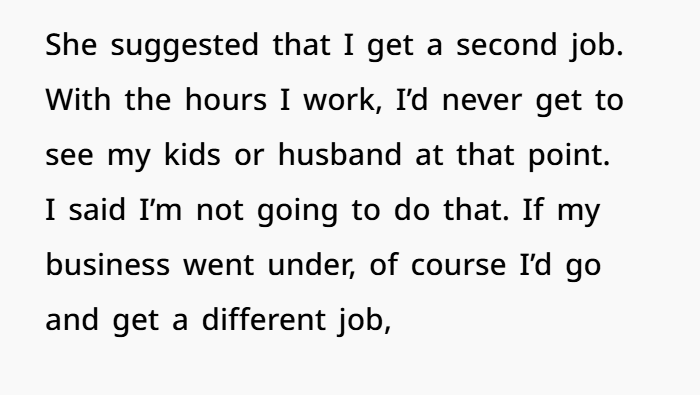
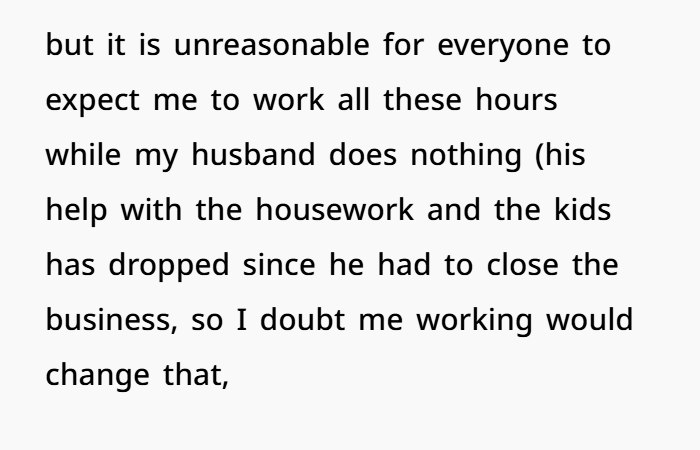
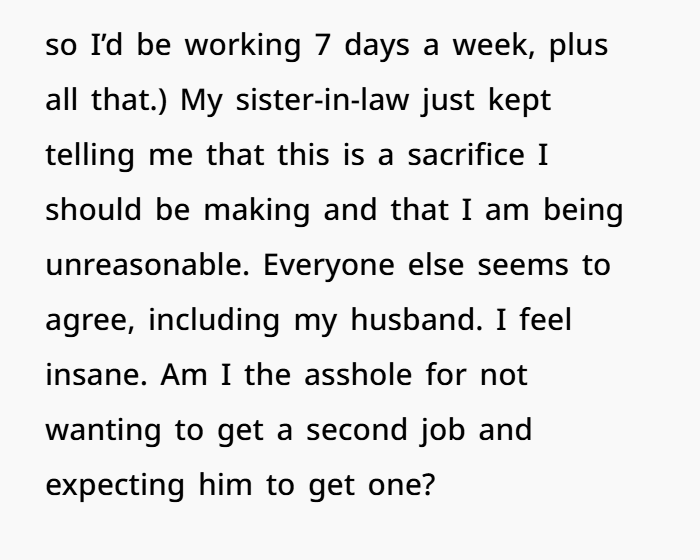
This post hits hard because it’s about more than just money—it’s about emotional labor, gender expectations, and how easily burnout gets brushed aside when it’s happening to a woman.
Let’s dig into the bigger picture, with a real talk kind of lens.
1. Grieving a Dream vs. Avoiding Responsibility
First, let’s acknowledge something real: losing a business—especially one you built from the ground up—is devastating. For many people, a small business isn’t just a job; it’s their identity, their pride, and their sense of purpose. It’s normal to grieve that loss.

BUT… there’s a difference between grief and avoidance. There’s a difference between needing time to recalibrate and outright refusing to contribute anything financially or domestically.
And it sounds like OP has given her husband grace. She’s been patient. She’s offered therapy. She’s shown understanding. But her husband’s response has been to check out—not just from work, but from housework and parenting too.
That’s not grieving anymore. That’s abandoning the partnership.
2. “Just Get a Second Job” — The Invisible Load Women Carry
Let’s talk about that wild suggestion from the sister-in-law: OP should get a second job… while also running her business, managing the house, and parenting. And for what? So her husband can avoid the mild discomfort of having a boss?
This mindset reeks of toxic gender norms. There’s this old, outdated idea that when men hit a rough patch, the family (read: the wife) should pick up the slack without question—no matter how tired, overworked, or emotionally depleted she is.
But let’s be honest: if the roles were reversed? If OP had shut down her business and said, “Sorry, I don’t feel like working again until I find something that aligns with my vibe”? You can bet there’d be pressure to “get your act together” real quick.
It’s 2025. Women aren’t default emotional and financial pack mules.
And the “just get a second job” comment ignores burnout, mental load, and physical limits. People aren’t machines. You can’t just pile on more hours and expect a person to keep functioning—especially when there’s no help on the other side.
3. Emotional Labor Isn’t Free (Even if You Don’t Get Paid)
OP is doing the emotional heavy lifting here—keeping the family afloat, managing financial stress, trying to support her husband’s mental state, maintaining her business, and dealing with family drama.
That’s emotional labor, and it’s real work.
Psychologists have long pointed out how women often carry this invisible burden. They’re the ones expected to be the peacemakers, the motivators, the ones who notice and fix problems. But emotional labor is exhausting, and when it goes unacknowledged, it becomes a silent source of resentment and burnout.
OP’s refusal to take on more isn’t selfish. It’s sustainable.
4. Financial Reality Doesn’t Care About Ego
Let’s bring it back to the money. OP’s family has bills. Debts. Responsibilities. That’s reality.
It doesn’t matter if a job isn’t “ideal” or if it hurts the ego to apply for entry-level roles after running your own show. Sometimes, life throws you curveballs, and you have to adjust. Millions of people—especially during economic downturns—have had to pivot careers, downsize dreams, or pick up jobs they never expected to take.
There’s no shame in that. But refusing to adapt out of pride? That’s not noble. That’s negligent.

If OP’s husband truly loved and respected her, he wouldn’t want her working herself to the bone while he sleeps in and scrolls job listings with no intention to apply.
5. Family Enablers: When Support Becomes Sabotage
Now let’s talk about the sister-in-law. Whooo boy.
It’s always wild when extended family jumps into a marital situation and sides with the least affected party. Instead of holding OP’s husband accountable, she condescended to OP and expected her to martyr herself.
This is enabling, plain and simple. It allows OP’s husband to feel justified in his inaction, and it pressures OP to “be the bigger person” to hold the family together.
But here’s the truth: Enabling someone’s avoidance doesn’t help them heal or grow. It just prolongs the problem and damages relationships.
If anything, OP setting this boundary is the healthiest move in the long run.
Readers assured the woman that her feelings were valid, and many noted that her husband needs to find a job ASAP
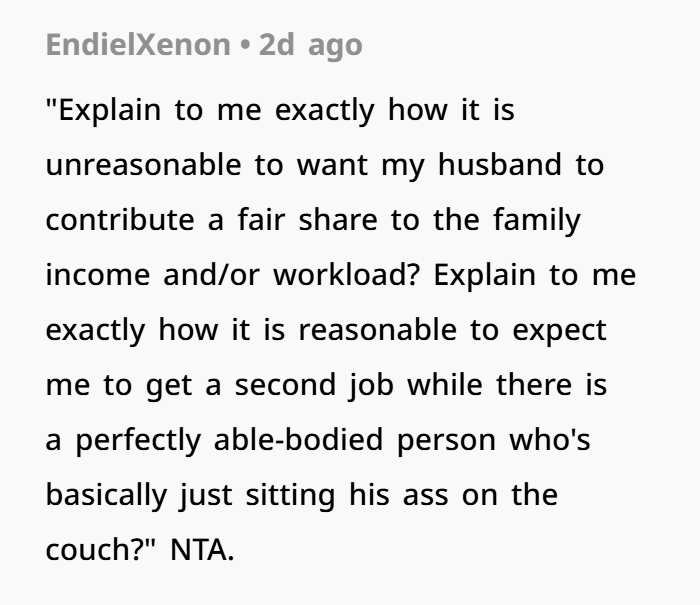
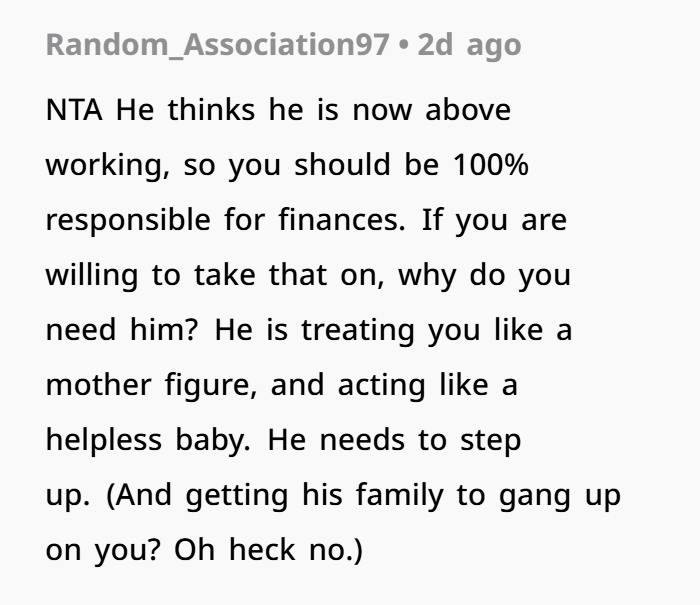
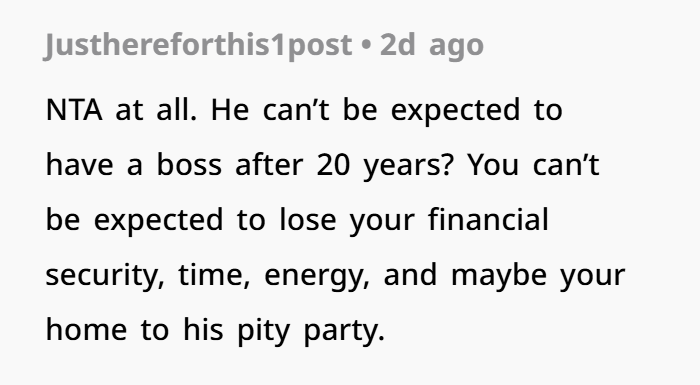
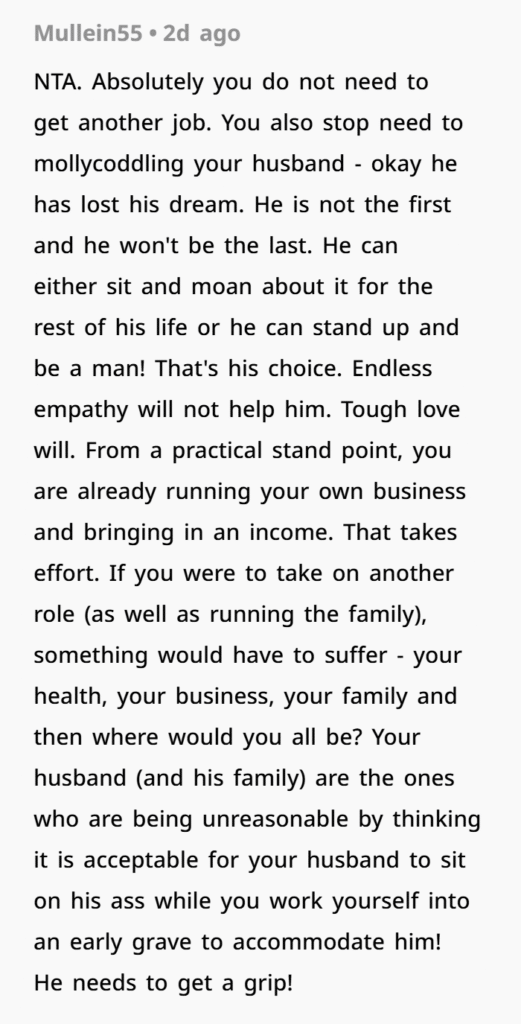
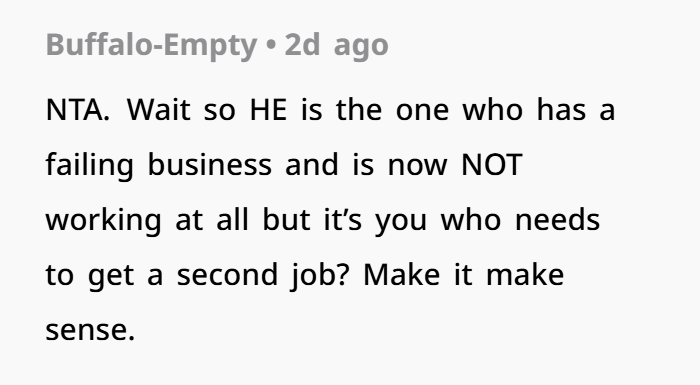

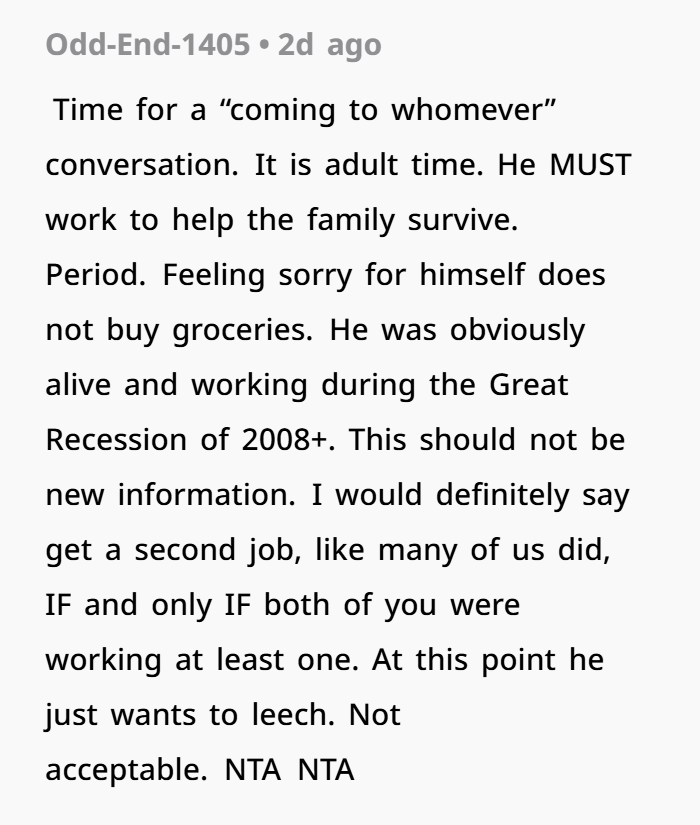

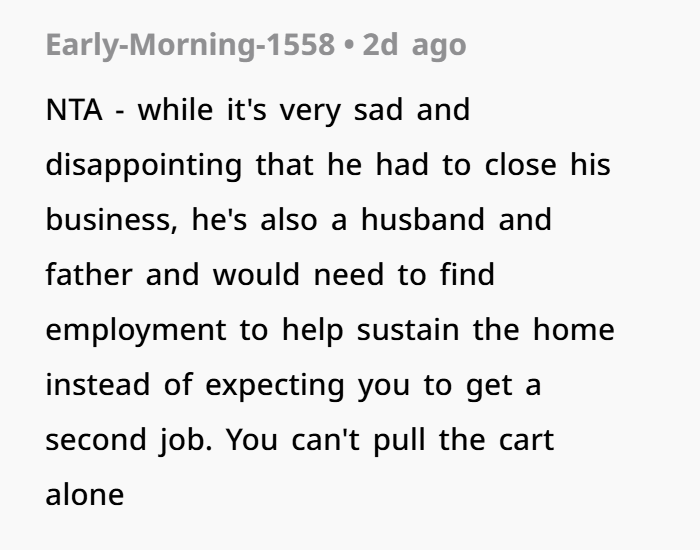
Not even close.
She’s doing everything she can—and more—to support her family during a hard time. But support doesn’t mean self-sacrifice to the point of collapse. It’s okay to have limits. It’s okay to say “no” to a second job when you’re already doing the work of two people.
Her husband needs to step up. Not in a year. Not “once he’s processed.” Now.
And the family? They need to stop cosigning his fantasy life and start encouraging him to rejoin reality.

